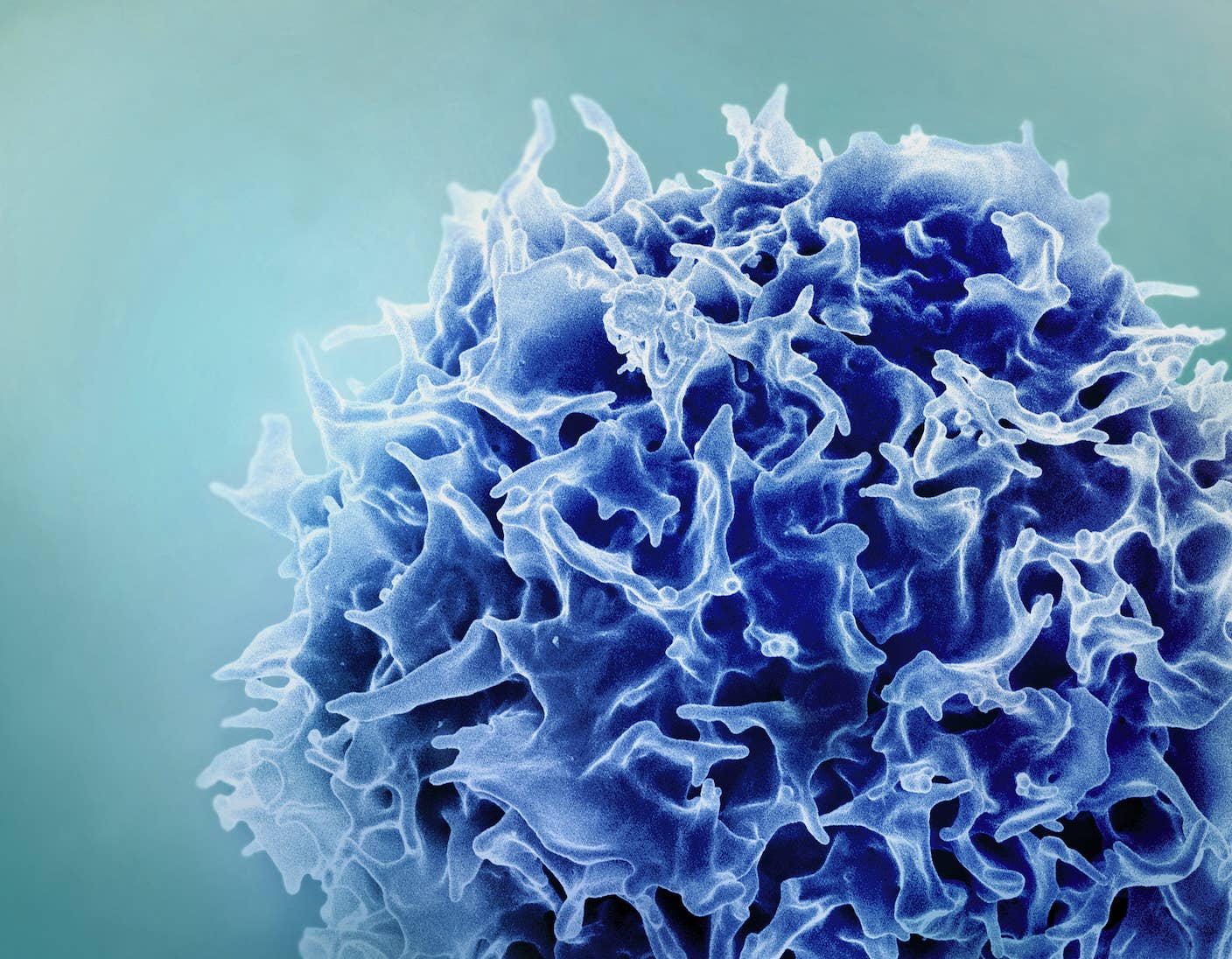New Cancer Vaccine Kills Lymphoma, Now in Phase III Clinical Trials

Share
Why fight cancer with chemotherapy or radiation when you can teach the immune system to do it for you? Sound far-fetched? In fact, cancer vaccines have already arrived. We’ve recently reported on Provenge, a new vaccine that rewires your body’s own defenses to wipe out prostate cancer. Now, Accentia Biopharmaceuticals and Biovest International have developed a non-Hodgkin’s lymphoma (NHL) vaccine that teaches the body’s immune system to identify and destroy tumor cells while leaving healthy tissue intact. The vaccine, called BiovaxID, is already in Phase III clinical trials.
The vaccine has already passed Phase I and II clinical trials with promising results: previous studies have shown that BiovaxID significantly increases both the time interval between relapses (44.2 months, as compared with 30.6 months in a placebo group) as well as patients’ overall survival rates. In some cases, the vaccine reportedly clears cancer completely from the body. Phase III trials have expanded the subject pool, and are currently studying the vaccine’s long-term effectiveness on 375 NHL patients. If all goes well, BiovaxID will then be passed on to the FDA for market approval.
Non-Hodgkin’s lymphoma is actually an umbrella term for 16 different types of blood cancer that show up in the lymphatic system. Every year, about 65,000 people are diagnosed with some form of NHL in the United States alone. BiovaxID is being developed and tested for follicular lymphoma, an indolent but ultimately fatal subtype of the disease that affects B-cells in the blood. The disease goes through periods of remission and relapse, with 90% of follicular lymphoma patients dying of the disease within 7 years of diagnosis. Current treatments involve a combination of chemotherapy, radiation and monoclonal antibodies. These therapies often show initial success, but fail in subsequent relapses as the cancer develops resistance.
So how does the vaccine work? Normally, NHL cancer cells are ignored by the immune system because their cell surfaces aren’t distinguished as abnormal when compared to healthy cells. Accentia takes cancer cell samples from an individual’s body and identifies a tumor-specific molecular marker (an antigen) along the cell surface. Next, they link up the cancerous cell with a protein molecule which makes it easier for the immune system to recognize the tumor-specific marker as foreign or undesirable. What results is a patient-specific vaccine, which teaches the body’s own immune system how to separate the good cells from the bad.
- BiovaxID is a vaccine specifically tailored to the patient's particular lymphoma cells
But follicular lymphoma isn’t the only cancer type that Biovest and Accentia want to target. Last month at the Active Immunotherapeutics Forum, Accentia’s chief science officer Dr. Carlos Santos reported positive findings in Phase II clinical trials to treat mantle cell lymphoma. This subtype is particularly deadly, and carries a 36-month median survival rate. Early results show that after a average follow-up of 46 months, 89% of mantle cell lymphoma patients are still alive. Other B-cell lymphomas could also potentially be treated using the vaccine, including multiple myeloma and chronic lymophocytic leukemia. These subtypes also exhibit cell surface markers that can be exploited by the vaccine.
The patient-specific vaccines also represent another big step for personalized medicine. We've recently covered the lung-on-a-chip that can be used for individualized drug testing, and back in January we hosted a booth at the Personalized Medicine Conference. As biotech becomes more individually tailored, treatments can be developed that fit case specifics instead of generalized trends, and that means better treatment all around.
Be Part of the Future
Sign up to receive top stories about groundbreaking technologies and visionary thinkers from SingularityHub.


Most of these vaccines will probably be used in combination with radiation and chemotherapy, as is currently the case in Phase III trials (the vaccine cleans up residual cancer cells following an initial chemo treatment). Still, the potential that a vaccine could eventually phase out chemo or radiation therapy is a pretty exciting prospect. As anyone familiar with these therapies knows, the treatment can often be worse than the disease. Vaccines that can destroy lymphoma without destroying healthy tissue will be welcome news to millions of cancer patients.
Here’s a quick video of Dr. Santos explaining BiovaxID and how it works:
[image credit: Biovest International]
Drew Halley is a graduate student researcher in Anthropology and is part of the Social Science Matrix at UC Berkeley. He is a PhD candidate in biological anthropology at UC Berkeley studying the evolution of primate brain development. His undergraduate research looked at the genetics of neurotransmission, human sexuality, and flotation tank sensory deprivation at Penn State University. He also enjoys brewing beer, photography, public science education, and dungeness crab. Drew was recommended for the Science Envoy program by UC Berkeley anthropologist/neuroscientist Terrence Deacon.
Related Articles

Single Injection Transforms the Immune System Into a Cancer-Killing Machine

This Light-Powered AI Chip Is 100x Faster Than a Top Nvidia GPU

This Week’s Awesome Tech Stories From Around the Web (Through December 20)
What we’re reading
